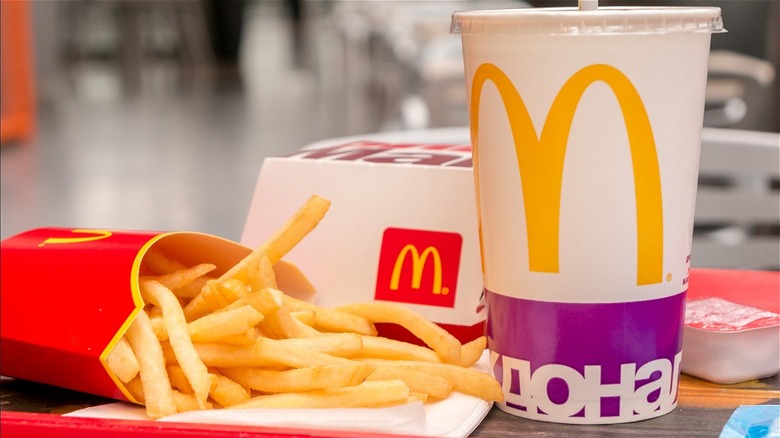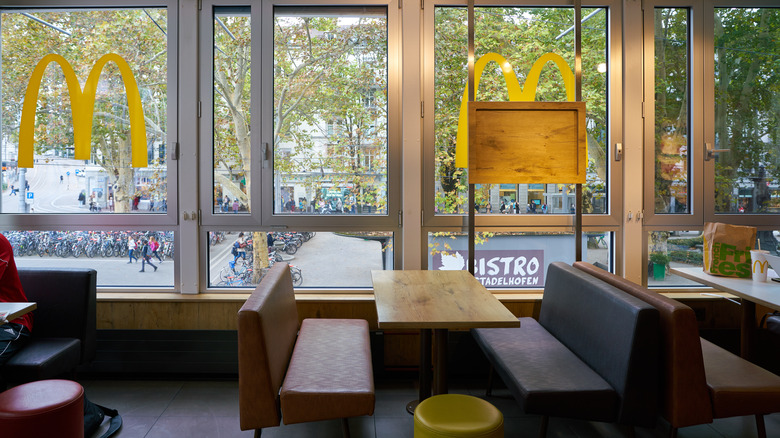McDonald's Just Made A Big Move With Its Russian Restaurants
Amid the ongoing war between Russia and Ukraine, food companies have been making corporate decisions to stand in solidarity with those affected. Some restaurants changed their menus after Russia's Ukraine invasion, removing any Russian-inspired dishes or ingredients. Some brands have even changed their names: One example is Stolichnaya Vodka, which changed its name to Stoli to show support for Ukraine.
According to Marketing Dive, consumers have responded positively to brands that have taken a stance and made a statement about the war. Still, certain companies have been silent about the violence in Ukraine, to the dismay of some consumers. As reported by The New York Times, brands such as Coca-Cola continued to sell their products in Russia well into March. This particular case caused author Stephen King to call for a Coke boycott. (Coca-Cola announced today that it would suspend sales in Russia.) However, one popular fast food chain came forward this Tuesday to announce its support for Ukraine. Here's how McDonald's operations in Russia will be affected by the crisis.
McDonald's is closing operations in Russia
On March 8, McDonald's announced that it would be showing its opposition to Russia's war against Ukraine by temporarily closing restaurants and pausing operations in Russia. The corporation published an article to its website highlighting this decision, noting that the letter was originally sent to employees by CEO Chris Kempczinski. The fast food restaurant also posted the announcement on Twitter. Kempczinski stated that McDonald's will continue to pay both its Russian and Ukrainian employees full salaries and donate $5 million to its Employee Assistance Fund.
Previously, McDonald's was criticized for staying quiet on the violence in Ukraine (via CNBC). It operates several hundred locations across both Ukraine and Russia and was under pressure to make a statement. McDonalds' actions in solidarity with Ukrainians pleased some consumers this Tuesday, based on Twitter conversations. Critics of the statement have questioned why the company still plans to pay its Russian workers.

